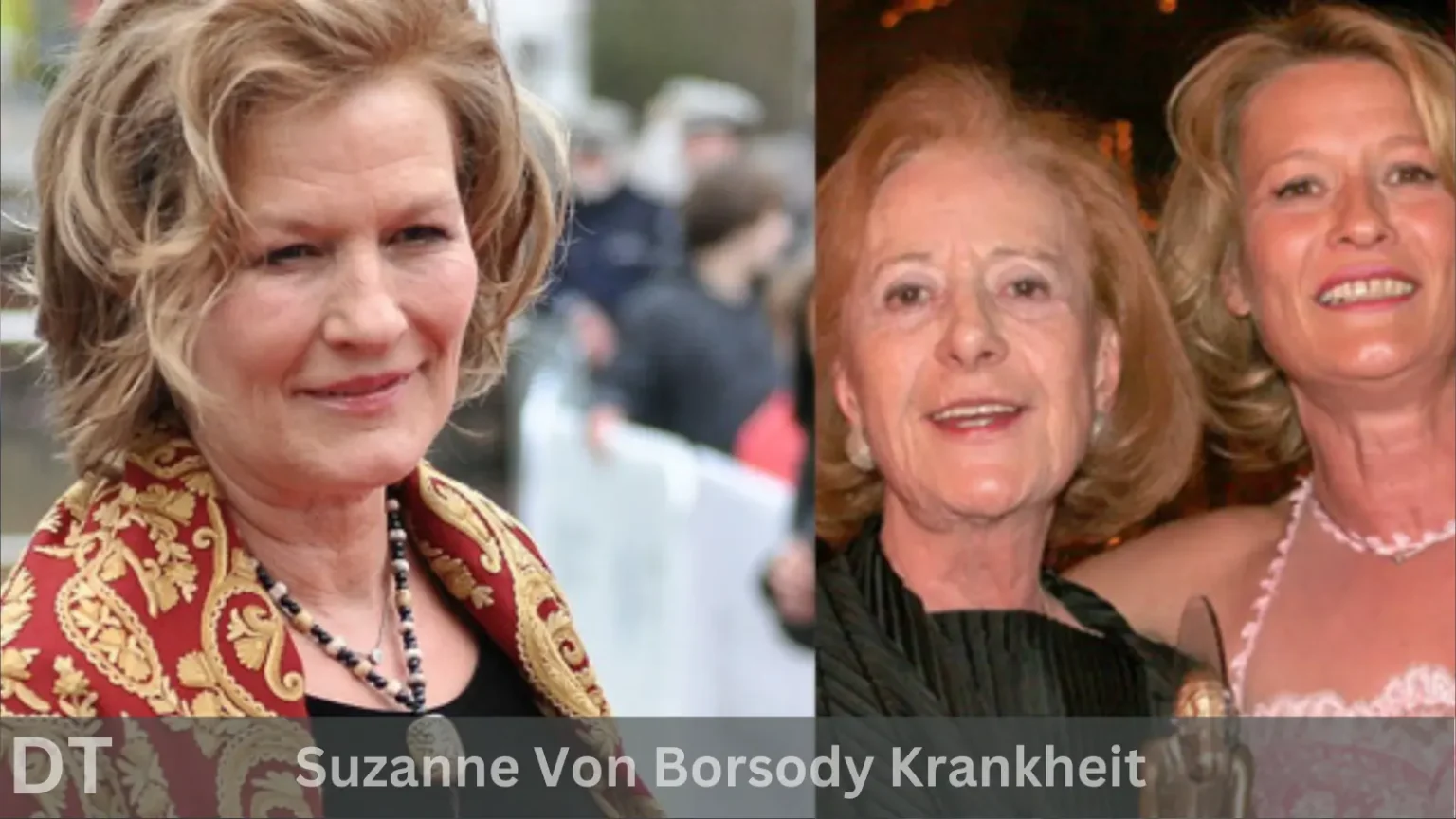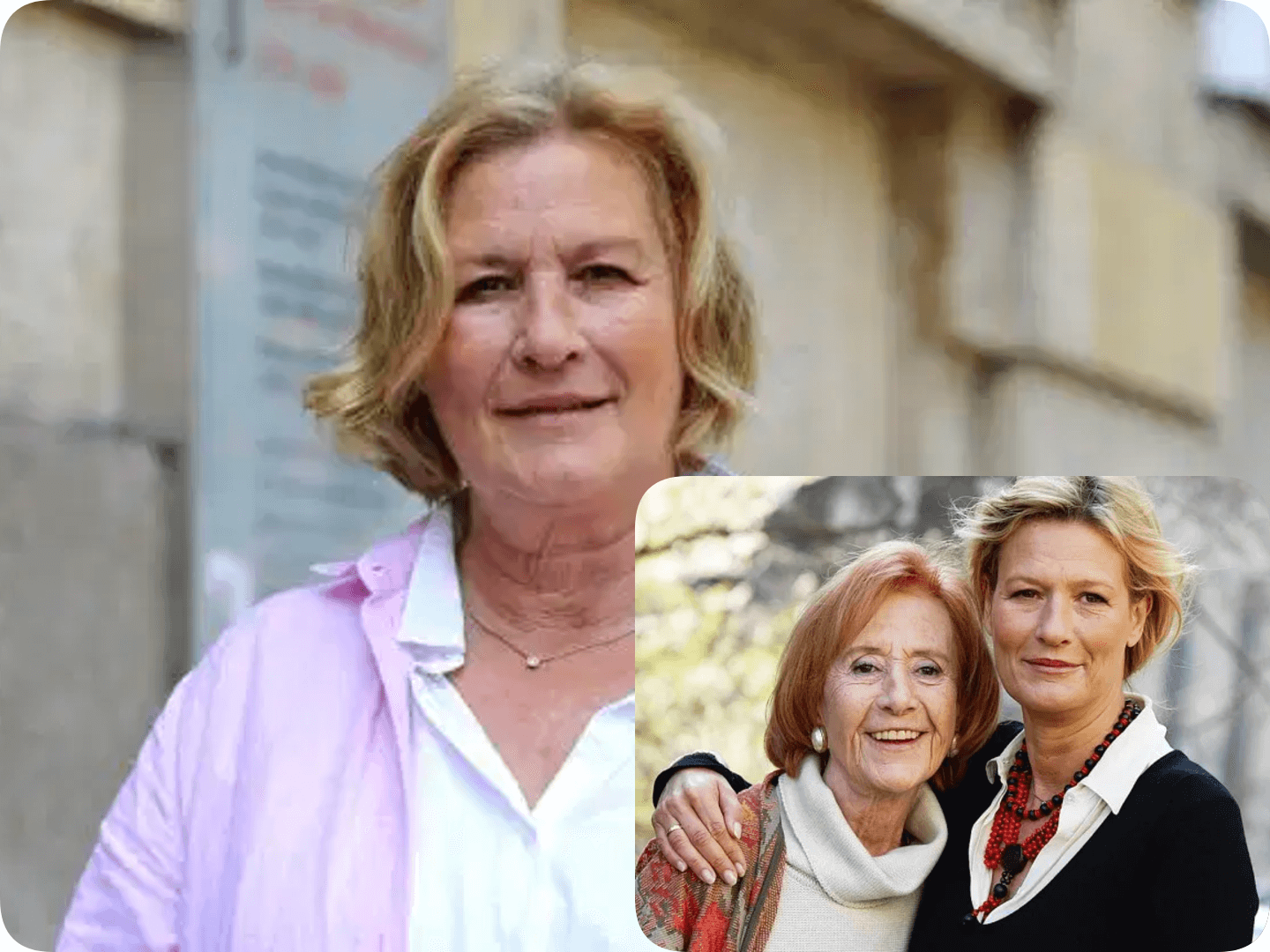Suzanne Von Borsody Krankheit :The Mystery Behind The Phrase

When people search for “Suzanne von Borsody Krankheit” (German for “Suzanne von Borsody illness”), they are trying to uncover the secret behind reported health struggles of the German actress. But the reality is nuanced: Suzanne Von Borsody Krankheit has never publicly disclosed a precise diagnosis, and much of what circulates in tabloids or fan forums is more speculation than fact.
This article will carefully sift through what is known, what is plausible, and what remains private. As someone who respects both public interest and personal boundaries, I will present the most credible information available, while making clear where the lines of certainty end.
Let’s walk through her background, the hints she’s dropped, how her health appears to have impacted her career, and what lessons we can take from a life under (partial) medical fog
1. Who Is Suzanne von Borsody? A Brief Biographical Sketch
Before diving into health questions, it helps to know the person behind the name. Suzanne Von Borsody Krankheit is a German actress, voice actor, and public figure with a long and respected career.
She was born on 23 September 1957 in Munich. Her family has deep roots in German arts: her mother was Rosemarie Fendel, a famous actress and voice artist, and her father was Hans von Borsody, also a noted actor.
Over the decades, Suzanne Von Borsody Krankheit has appeared in numerous films and television roles, occasionally doing dubbing work (for example, lending her voice to German-language versions of foreign films). She has also been involved in social and charitable causes, such as acting as a UNICEF Goodwill Ambassador.
Given her public visibility and long career, curiosity about her health is understandable. Yet unlike some public figures, she has chosen a more discreet path when it comes to medical disclosures.
2. What’s Known: Hints, Interviews, and Speculation

Because Suzanne Von Borsody Krankheit ,definitive public statement about a single illness, what we know comes from interviews, media reports, and sometimes rumors.
2.1 Her Own Words: Ambiguity but Acknowledgement
In several interviews, Suzanne Von Borsody Krankheit has acknowledged that she faces health challenges that affect her stamina, work rhythm, and energy. She sometimes speaks about needing to pace herself more, selecting roles carefully, and balancing rest with work. But she stops short of naming a specific disease or condition.
This kind of disclosure suggests she wants to maintain control of her narrative—letting audiences know she is not always at full strength, but without giving away private medical details.
2.2 Media Reports and Speculative Claims
Media outlets and fan sites often raise conjectures. Some suggest she may suffer from a chronic fatigue syndrome or a similar “invisible illness” condition. For instance, one article claims her “Kampf gegen das chronische Müdigkeitssyndrom” (fight against chronic fatigue syndrome) has been part of her journey.
Other sources note that she “never disclosed exactly what illness she has,” adding that it is known she has chronic health difficulties that force her to reduce her workload.
However, none of these claims are backed by medical records or solid confirmation from Suzanne or her medical team. So they remain speculative.
2.3 Why the Secrecy? Respecting Privacy in the Public Eye
It’s quite common for public figures to maintain a degree of privacy around health issues. There is always a tension: on one hand, fans and the public are curious; on the other hand, revealing too much can invite misunderstanding, unwanted media scrutiny, or even exploitation of personal vulnerability.
In Suzanne’s case, keeping the specifics private allows her to manage how much her condition becomes part of her public identity. It also prevents rumors from overwhelming what’s real.
So, in sum: we know she has health issues, we know they interfere with her work, but we do not have a verified diagnosis.
3. How Her Health Appears to Affect Her Career
Even without full medical clarity, there is visible evidence that her health has shaped choices in her professional life.
3.1 Selectivity in Roles and Project Load
Reports indicate that Suzanne Von Borsody Krankheit now selects fewer roles and takes on projects more cautiously than in her earlier years. Some sources say she refuses or postpones opportunities when they risk exhausting her.
This aligns with a strategy many afflicted by chronic or energy-limiting illnesses adopt: conserve energy, prioritize what matters, and avoid overcommitment.
3.2 Periods of Lower Visibility
There have been stretches when she has been less present in film and television. While age, personal choices, and evolving industry opportunities may also contribute, it is plausible (and often suggested) that health constraints play a part.
These quieter periods can sometimes fuel speculation, but they may simply reflect a phase of recovery or rest—strategies often necessary when managing ongoing health issues.
3.3 Adapted Working Conditions
An actor under health strain might ask for smaller shooting schedules, more breaks, less travel, or roles requiring lower physical exertion. It’s reasonable to infer that Suzanne may adapt her work environment or style to better align with her condition, even if such behind-the-scenes adjustments go unreported.
In effect, her health has likely influenced not only which projects she accepts but how she works on them.
4. Plausible Conditions and Why Certainty Eludes Us
Given the limited and sometimes conflicting information, it’s instructive to think about what illnesses could match her reported symptoms, and why absolute certainty is elusive.
4.1 Possible Conditions Matching Her Reports
- Chronic Fatigue Syndrome (CFS) / Myalgic Encephalomyelitis (ME): Some articles explicitly mention this as a possibility. People with CFS often struggle with persistent fatigue, post-exertional malaise, and fluctuating capacity.
- Autoimmune Diseases: Conditions like lupus, Hashimoto’s thyroiditis, or fibromyalgia can cause fatigue, pain, and fluctuating symptoms.
- Neurological or Mitochondrial Disorders: Some less common disorders impact energy production, muscle function, or nerve signaling, which could present as vague but debilitating symptoms.
- Psychosomatic or Overlapping Syndromes: Some health challenges are multifactorial—blending physical, neurological, and psychological components.
But these are only hypotheses, not diagnoses. None of the sources reliable enough to cite definitively name one of these for Suzanne.
4.2 Why We May Never Have a Confirmed Answer
- Patient Privacy: Medical confidentiality and personal choice may prevent her from publicly disclosing the specifics.
- Diagnostic Uncertainty: Some chronic conditions are hard to diagnose definitively, even by specialists.
- Changing Conditions: Her symptoms may evolve over time, complicating a single label.
- Media Misinformation: Rumors, misinterpretations, or exaggerations can cloud the truth.
Thus, while educated guesses exist, none can be stated as fact in the absence of a confirmed source.
5. Coping Strategies, Support, and the Role of Resilience
Even without knowing her exact illness, we can look at what helps someone in her situation—and what we do know she appears to use.
5.1 Pacing, Rest, and Work-Life Balance
One of the most consistent themes is that Suzanne Von Borsody Krankheit seems to pace her work. She may choose roles carefully, take breaks, and avoid overextending herself. These are central strategies for anyone dealing with chronic or energy-limiting conditions.
She likely requires a balance: stepping back when needed, working when possible, and not forcing consistent high performance.
5.2 Medical and Therapeutic Support
Though there is no public record specifying treatments she uses, it is reasonable to assume she employs regular medical follow-up, perhaps specialists (neurology, immunology, internal medicine) and therapies (physical therapy, cognitive therapies, symptom management regimens).
Many with chronic illnesses use multiple modalities—medications, lifestyle interventions, diet, sleep hygiene, stress reduction, and mental health support—to manage symptoms.
5.3 Emotional and Social Support Networks
Behind every person managing ongoing health struggles is a network—family, friends, colleagues, therapists. Suzanne Von Borsody Krankheit’s openness in acknowledging her health challenges suggests she does not deal with them entirely privately, and likely values those support structures.
Emotional resilience, adaptability, and a strong internal framework are invaluable in such circumstances
6. What We Can Learn from Her Example
Suzanne Von Borsody Krankheit’s story—partial, ambiguous, but persistent—offers insights beyond celebrity intrigue.
6.1 Strength in Vulnerability
By acknowledging health struggles without overexposure, she models a particular kind of resilience: vulnerability without self-exposure, sharing without losing privacy.
6.2 Choosing Quality Over Quantity
Suzanne Von Borsody Krankheit selective approach to work suggests a wisdom that many could benefit from: doing fewer things better, rather than trying to do everything and risking burnout.
6.3 Normalizing Health Variability
Public perception often expects celebrities to be paragons of health and stamina. By contrast, Suzanne Von Borsody Krankheit’s narrative reminds us that chronic health issues can affect anyone—even those in the limelight. This normalization helps reduce stigma and encourages empathy.



